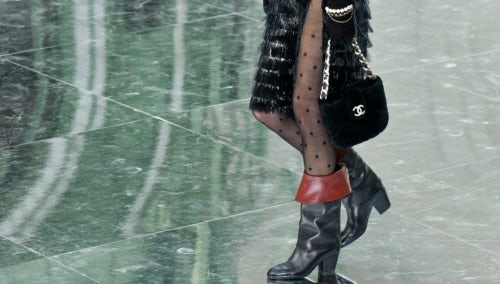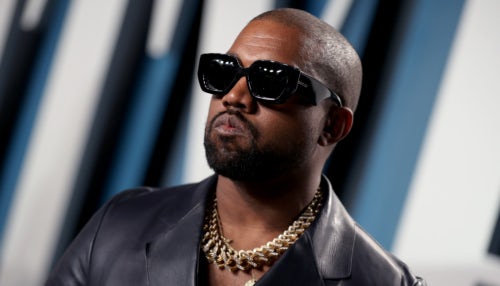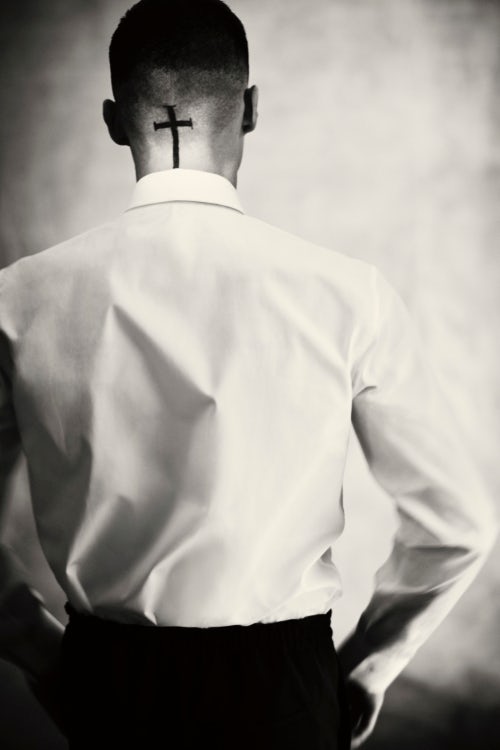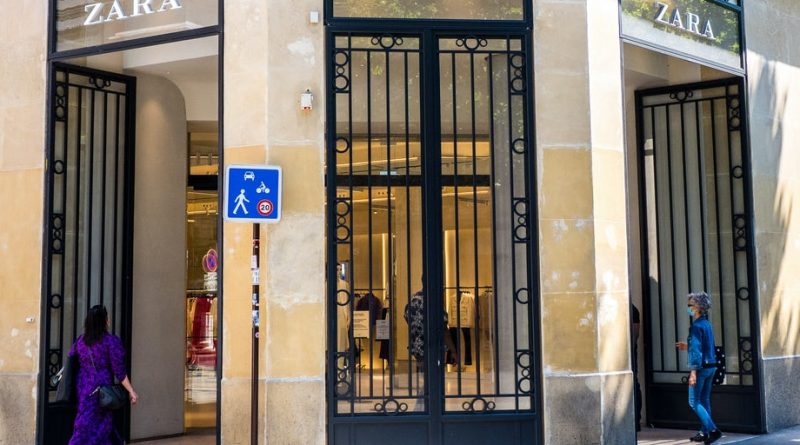Could the Pandemic Make Retail Better? | BoF Professional, This Week in Fashion
The coronavirus crisis has forced thousands of store closures and crushed consumer demand for non-essential fashion goods, damaging brands from H&M to Chanel. Some of the weakest players have already filed for bankruptcy and may not survive the storm. But the pressure has driven others to make long-overdue changes that could ultimately make them stronger.
The world’s largest fashion retailer is a case in point. Last week, Inditex, posted its first quarterly loss since becoming a public company in 2001. But the sobering results were accompanied by a bold plan of action: shutter 1,200 underperforming stores and significantly scale up the company’s digital business. The Spanish giant, which owns Zara, aims to grow e-commerce sales to 25 percent of total revenue by 2022, a leap from 14 percent last year.
The pandemic has accelerated consumer adoption of e-commerce and forced retailers to respond. Now, as stores reopen, some of the purchasing behaviour that shifted online will surely stay there, even in categories like fashion which, in the past, have primarily been sold in physical stores. According to Bernstein, e-commerce is expected to account for 23 percent of total fashion sales in Europe this year.
At the same time, brands are realising they may be able to more profitably serve certain customer segments via e-commerce, allowing them to right-size their retail networks by closing underperforming stores and focusing on locations and formats that are more productive.
Inditex is investing €2.7 billion ($2.9 billion) in its overhaul, which includes a €1 billion IT upgrade as well as the opening of 450 new stores. “A higher quality network of better located stores in conjunction with online is expected to generate long-term annual like-for-like sales growth of 4 percent to 6 percent,” said Inditex in a statement accompanying its results. “These initiatives are expected to result in higher levels of profitability and lower capital intensity.”
In-store innovation is also critical, as customers increasingly habituated to shopping online and wary of Covid-19 infection risk are unlikely to visit physical shops without a compelling reason even with social distancing and other safety measures in place. Omni-channel innovations like contactless pickup will become standard, and retailers may add dedicated distribution hubs for this purpose.
But brands will need to go further, offering unique experiences that go beyond mere transaction to attract shoppers. This was already the case pre-pandemic, but the crisis has sharpened the issue and could prove to be a catalyst for stronger action.
At one level, Covid-19 has reminded consumers that human connection and community matter most, and some stores may become places where people convene, not just to shop but to spend time together. Others may offer exclusive, in-store-only merchandise or greater personalisation.
Inditex is prioritising large format stores in prime locations, but smaller neighbourhood stores that deliver on convenience and have a local vibe may also offer opportunity for some players, especially as Covid-19 has shrunk the perimeters of daily life and consumers remain hesitant to travel. Each brand will need to find the formula that works best for its own strategy.
As stores start to reopen, many retailers may not see a rebound in sales for some time. But the best among them will harness the dynamics unleashed by the pandemic to rethink their distribution networks, making them more advanced and stronger in the process. For some players, Covid-19 is a death sentence. For others, it might provide an opportunity for rebirth.
THE NEWS IN BRIEF
FASHION, BUSINESS AND THE ECONOMY

Chanel Autumn/Winter 2020 show at Paris Fashion Week | Source: Getty Images
Chanel surpasses $12 billion in 2019 sales, signals trouble into 2021. The luxury megabrand’s sales were up 10 percent from $11.1 billion in 2018 on the back of “robust” beauty and fragrance sales and double-digit growth in the fashion category, buoyed by the success of the collections designed by creative director Virginie Viard. But the brand sees lasting impact from the Covid-19 crisis. “This isn’t not a question of three months, but a question of 12-18 months,” said Chanel Global CFO Philippe Blondiaux.
Boohoo acquires Warehouse and Oasis brands. The Manchester Based Group, which also owns Nasty Gal and Prettylittlething, paid £5 million for the struggling British apparel companies. Boohoo also announced a sales surge of 45 percent in the quarter ended May and a revenue of £367.8 million ($462.4 million) as shoppers turned to online orders during lockdown.
Sies Marjan to close. The fêted five-year old label, designed by Sander Lak and backed by billionaire Nancy Marks, is shutting its doors. The fallout from Covid-19 was a key factor in the decision, but even before the crisis, Sies Marjan was suffering from over dependence on department stores like Barneys New York, which closed last year.
H&M sales decline in the second quarter. The Swedish fast fashion retailer saw net sales fall by 50 percent in the three months to May 31, despite an uptick in online sales. H&M has started a phased reopening of its stores after shuttering 80 percent of its outlets during the peak of the coronavirus outbreak. Even so, the retailer said local currency sales in the first 13 days of June were down 30 percent.
Michael Kors to skip fashion week, reshape schedule. The American fashion giant will move to producing two collections per year, and will sell its products to retailers before it presents them to the public in order to streamline its supply chain and allow more time for production. The brand will also skip New York Fashion Week this September.
Black professionals petition CFDA over ‘hasty attempts’ to counter racism. A group of 250 professionals submitted a four-part proposal to the trade group, named “The Kelly Initiative” after black designer Patrick Kelly, the first American to be admitted to the Chambre Syndicale du Prêt-à-Porter. The letter urges the CFDA to implement manager bias-mitigation training and pledge to create hiring opportunities for black professionals.
THE BUSINESS OF BEAUTY

Kanye West at the 2020 Vanity Fair Oscar Party | Source: Getty Images
Kanye West files trademark for Yeezy Beauty. The trademark covers makeup, fake eyelashes, face masks, nail polishes, moisturisers, body oils, bath gels, shaving creams, haircare, perfume, toothpaste, deodorant, scented pinecones and aromatherapy pillows, according to reports. The rapper and designer is already a billionaire on the back of his sneaker collaboration with Adidas.
Beautycounter and Sephora join forces on new pop-up. The partnership will also include a digital-first launch of 11 products, including best-selling serums and face peels. Beautycounter’s pop-up, which is both online and in-store, will run until October and is likely to accelerate the clean beauty brand’s growth due to Sephora’s strong online sales.
PEOPLE

Matthew Williams by Paolo Roversi | Source: Courtesy Givenchy
Matthew M. Williams is Givenchy’s new creative director. The founder of the luxury streetwear-inspired label 1017 ALYX 9SM succeeds Clare Waight Keller and will present his first collection for the LVMH-owned brand in Paris in October. Williams will likely bring his minimal, streetwear aesthetic into the Givenchy brand, exciting Millenials and Gen-Z shoppers, who drive up a fast-growing share of global luxury consumption.
Yael Aflalo steps down after accusations of racism. The Reformation’s founder and CEO will be replaced by current president Hali Borenstein. The news comes after a former employee accused Aflato of racism, citing statements that Reformation wasn’t “ready” to feature black models and other forms of discrimination. Aflato has since publicly apologised in a post on Instagram.
Emma Watson joins Kering’s board. The British actress will join the luxury group’s sustainability committee, which is focused on environmental matters, a growing concern for many young luxury shoppers. Former Credit Suisse boss Tidjane Thiam will also join Kering’s board and will chair the company’s Audit Committee.
MEDIA AND TECHNOLOGY
Amazon and Valentino file joint lawsuit over shoe counterfeiting. The move is Amazon’s first joint litigation with a luxury fashion brand and Valentino’s first with an online retailer. Counterfeits have long been a concern for brands selling on Amazon, which recently doubled down on its attempts to stop fakes by agreeing to work more closely with police.
Walmart partners with Shopify to expand online marketplace business. The American retailer aims to add 1,200 sellers this year to double down on the coronavirus-fuelled surge in e-commerce sales. The move to bolster Walmart’s online shopping channels is an attempt to increase the profitability of its $21.5 billion US e-commerce business, particularly as physical retail suffers from a pandemic-induced downturn.
Compiled by Daphne Milner.
BoF Professional is your competitive advantage in a fast-changing fashion industry. Missed some BoF Professional exclusive features? Click here to browse the archive.

